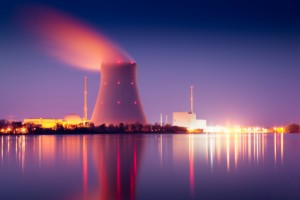In light of Japan crisis, what is church’s position on nuclear energy?
 As the citizens of Japan face the ongoing threat of nuclear contamination and radiation sickness, religious leaders in other parts of the world have been speaking out about the danger of relying on nuclear power to meet energy needs.
As the citizens of Japan face the ongoing threat of nuclear contamination and radiation sickness, religious leaders in other parts of the world have been speaking out about the danger of relying on nuclear power to meet energy needs.
Bishop Deogracias Iniguez, head of the public affairs committee of the Catholic Bishops’ Conference of the Philippines, said the situation at Japan’s Fukushima nuclear power station confirmed why the Filipino church has opposed using nuclear energy to generate power.
“I think [government officials] should intently follow what is happening in Japan,” he was quoted as saying in a recent Catholic News Service story. “We have long been opposing it due to its possible negative effects in the country.”
Ecumenical Patriarch Bartholomew of Constantinople, who speaks often about the responsibility of Christians to care for the environment, sent a message to members of the Orthodox Church saying the tragedy in Japan illustrates the danger posed by nuclear power plants.
“With all due respect to the science and technology of nuclear energy and for the sake of the survival of the human race, we counter-propose the safer green forms of energy,” the patriarch said. Those greener energy sources would include solar, wind and water-generated power.
Concerns expressed
You might think, based on these comments, that the Catholic and Orthodox churches are fundamentally opposed to the use of nuclear power. I’m not sure about the position of the Orthodox Church as a whole on this issue, but the Catholic Church seems to take an evenhanded approach, although it’s difficult to find many official, authoritative statements on the topic.
In 2009, Archbishop Celestino Migliore, at the time the Vatican’s chief representative to the United Nations, reaffirmed the Vatican’s support for the nuclear nonproliferation treaty. A CNS story also noted that he called for an agreement on the production of nuclear fuel to meet growing energy needs, with the International Atomic Energy Agency “taking a leading role to ensure safety, security and fair access for all countries.”
That same year, the bishops of Alberta, Canada, issued a pastoral reflection on nuclear energy in response to proposals to build and operate commercial nuclear reactors in the province. The bishops did not take sides, but called for deeper discussions and ethical reflections on the issue touching on these topics: stewardship of the environment; protection of human life and respect for the integrity of creation; stewardship of public resources; security; and adequate consultation of those potentially impacted.
Benefits and risks
Until other alternative sources of energy can be developed affordably and efficiently on a large scale, nuclear power offers one option for meeting energy needs while cutting down on carbon dioxide emissions that contribute to the problem of global warming — the dangers of which the Catholic Church continues to warn about.
At the same time, we must not forget the caveat that nuclear power be generated in a way that is safe and secure.
The Union of Concerned Scientists warns that an expansion of nuclear power also carries an increased risk of catastrophic events not associated with alternative energy sources. Their position paper on nuclear power and global warming notes:
“These catastrophic events include a massive release of radiation due to a power plant meltdown or terrorist attack, or the death of tens of thousands due to the detonation of a nuclear weapon made with materials obtained from a civilian — most likely non-U.S. — nuclear power system.
“Expansion of nuclear power would also produce large amounts of radioactive waste that would pose a serious hazard as long as there remain no facilities for safe long-term disposal.”
And, of course, as the situation in Japan has revealed, there is the threat posed by unprecedented natural disasters.
The topic of nuclear energy is a particularly poignant issue in Minnesota these days because some state legislators want to lift a moratorium, in place since 1994, on building new nuclear power plants. Minnesota currently has two plants — in Monticello and Prairie Island.
All of this leaves one wondering: Is the expansion of nuclear power an acceptable option — morally and ethically — to meet energy needs in today’s world? What do you think?


 Votes : 0
Votes : 0









